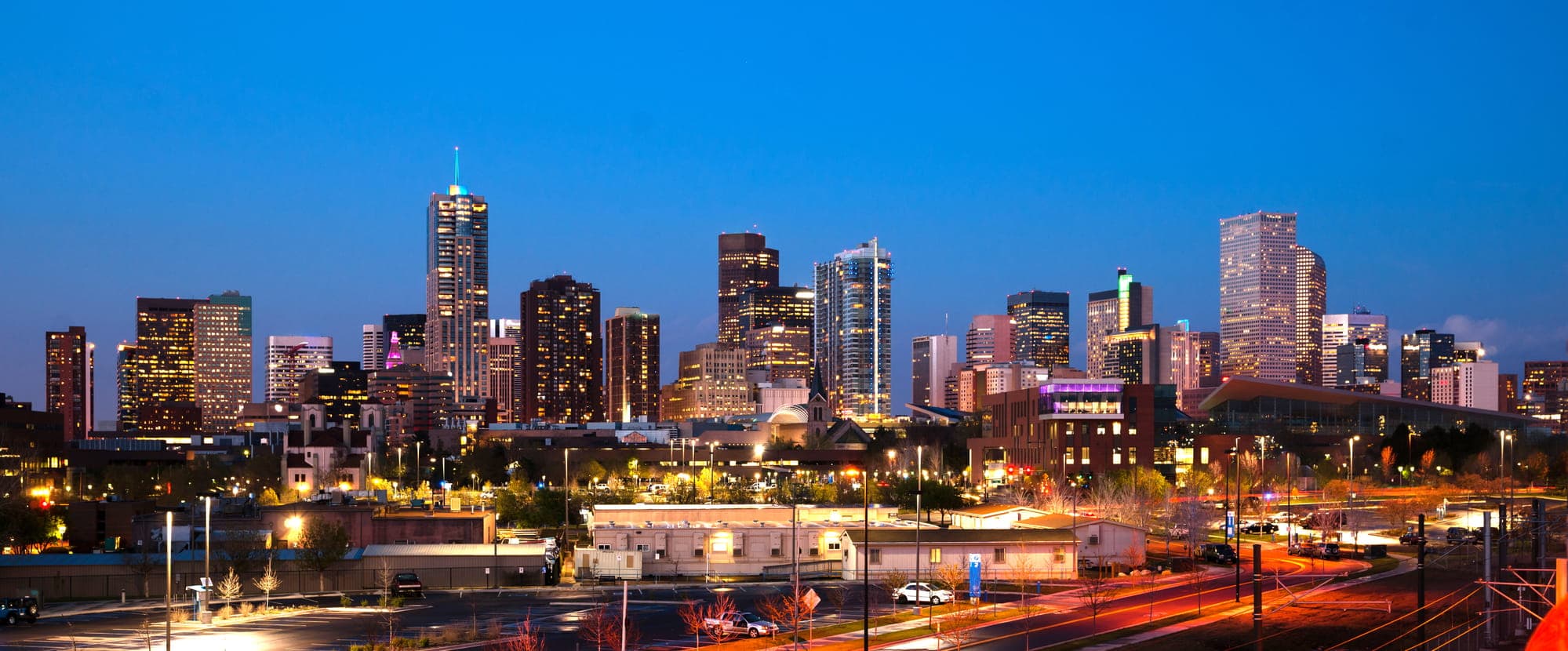If you’ve been contemplating a move to a more scenic state and exploring your options, the Colorado real estate market may be worth considering. Known for its stunning picturesque landscape, healthier lifestyle, and booming business economy, Colorado offers future residents an exceptional opportunity to balance work and play.
From the burgeoning arts scene in Denver to the natural landmarks of Grand Junction, Colorado encapsulates every reason you think of to change cities and states. We’ll explore the main reasons people are moving to Colorado—along with highlighting the top-ranking cities in the state.
These Are 12 Reasons People Are Moving to Colorado
From Colorado Springs to Fort Collins, the Centennial State has many attractive options for people seeking to relocate.
The reasons why someone might want to consider moving to Colorado are diverse, ranging from a strong job market to its ability to help cultivate a healthier, active lifestyle compared to many other states.
Balanced Cost of Living
While the cost of living in Colorado might be above the national average, it is counterbalanced by a higher median income.
The housing costs can vary depending on the location, with housing market prices in larger cities like Denver and Boulder being higher than in the mountain towns. Yet, the diverse range of housing options, from apartment buildings to family homes, allows individuals and families of different income levels to find something suitable.
Despite higher housing costs, average costs for groceries, healthcare, and utilities remain relatively in line with national averages. Therefore, when considering the cost of living, it’s important to consider not just expenses but also the job opportunities, and quality of life that Colorado offers.
Fair Colorado State Taxes
Understanding the tax landscape is vital when moving to a new state. Colorado’s flat income tax rate is attractive, especially for high-income earners. Unlike states with progressive tax systems that charge higher rates for higher earners, Colorado maintains a single rate for all, making it a fair system for all residents.
Colorado’s property taxes are comparatively low, providing relief to homeowners who face higher housing costs. On the flip side, the state’s sales tax system combines state, county, and city sales tax rates, which can add up, especially in larger cities.
However, considering the job growth, robust economy, and higher median household income, the overall tax structure in Colorado is considered reasonable by many residents.
Climate and Seasons: The Winter of Your Discontent?
Colorado’s climate may present a new challenge for those moving from a humid climate or those unused to cold winters.

The state experiences a full range of seasons, with the winter season bringing heavy snowfall, particularly in the mountain regions.
Despite these challenges, many find the climate to be an attractive feature of Colorado. The dry climate means the cold is less biting, and the heavy snowfall opens up a world of snow sports and beautiful scenery.
Good Economy and Employment Stats
The strong economy and healthy employment rate make Colorado a magnet for job seekers. Denver, the biggest city, hosts numerous major corporations, including Lockheed Martin, providing abundant job opportunities.
Job growth is strong in the tech and aerospace sectors, and Colorado Springs has been recognized for its robust economy.
In addition, cities like Fort Collins and Boulder have been praised for their economic growth and rapid population growth, offering endless opportunities.
With multiple major cities experiencing such positive economic indicators, it’s no surprise that Colorado’s median household income is higher than the national average.
Supports Outdoor Lifestyles and Better Health
For outdoor enthusiasts, moving to Colorado could lead to a healthier lifestyle. The state boasts an array of outdoor recreation opportunities, from hiking and biking trails in the summer to skiing and snowboarding in the winter. This active lifestyle contributes to Colorado’s healthier population.
However, altitude adjustment can lead to shortness of breath or even altitude sickness for newcomers. Despite this, most residents adapt quickly and find the endless outdoor activities worth the initial adaptation.
Vibrant Culture and People
Colorado offers a vibrant culture complemented by friendly, health-conscious people who enjoy an active lifestyle. Cities like Denver and Boulder have many dining options, including abundant healthy food options and craft breweries.
Denver is also home to professional sports teams, including the Denver Broncos and Denver Nuggets, fostering a strong community spirit.
While the cost of living in the largest cities can be higher than the national average, the cultural offerings, from art galleries to music festivals, more than compensate for the expense.
Beautiful Natural Geography, Parks, and Mountains
Colorado’s stunning landscapes and natural beauty are major draws for nature lovers.
The state has multiple national parks, including the iconic Rocky Mountain National Park. Outdoor recreations are abundant, with mountain biking in the summer and world-class ski resorts like Beaver Creek and Crested Butte in the winter.
Living in Colorado means you’re always close to picturesque mountain trails, alpine lakes, and abundant wildlife.
Refined Dining and First-Rate Breweries
Colorado is renowned for its exceptional food and beer scene. Cities like Denver and Boulder offer many dining options, from upscale restaurants to vibrant food trucks.
The state is also known for its healthier lifestyle, and this extends to its food culture, with many places offering organic, locally-sourced dishes. While dining out can be more expensive than the national average, the quality makes it a worthwhile investment.
Moreover, Colorado has a rich tradition of craft breweries, boasting one of the highest numbers per capita in the U.S. Beer lovers can delight in brewery tours and tastings across the state. Just remember to drink responsibly, as the effects of alcohol can be more potent at higher altitudes.
Colorado Top Ranking Cities
Several cities within Colorado consistently rank high for quality of life, job growth, and recreational activities:
Denver
Nicknamed “Mile High City,” Denver sits one mile (~5,280 ft) above sea level. As the state’s largest city, Denver offers a bustling economy, a vibrant cultural scene, and abundant recreational activities.
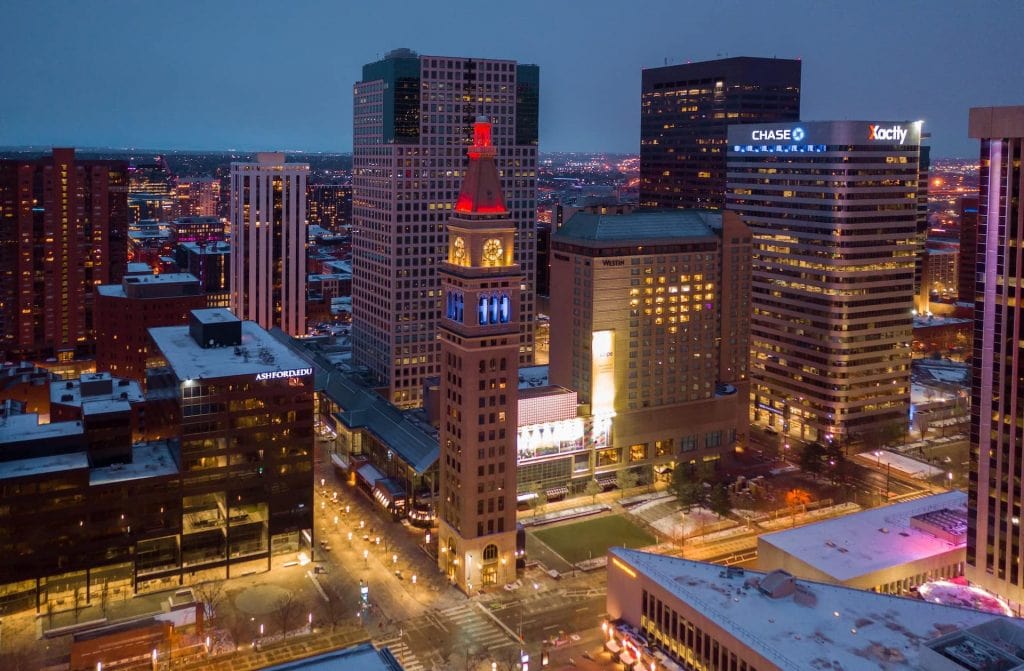
It also offers an incredible educational system for those with young children—which features the Rocky Mountain Deaf School as an option for deaf and hard-of-hearing bilingual students. Denver University is ranked among the best colleges in the country, as indicated in the U.S. News and World Report.
While a larger city, Aurora offers a quieter, suburban feel with access to Denver’s amenities.
While smaller than other cities, Pueblo and Grand Junction are recognized for their affordable housing costs in comparison to Denver, providing an attractive option for those seeking a lower cost of living—although Denver tends to be the “hub.”
Fort Collins
Home to Colorado State University, Fort Collins combines a college town’s energy with a small city’s tranquility. This city is renowned for its craft breweries, unique dining options, and extensive biking trails. Each city offers a unique charm, providing prospective residents with various options when considering moving to Colorado.
Boulder
Boulder, nestled at the foot of the Rocky Mountains, is known for its outstanding outdoor recreation opportunities and its educated, health-conscious population.
The city is home to the University of Colorado, which injects a youthful and vibrant energy into the local community. Boulder’s downtown, with its pedestrian-friendly Pearl Street Mall, is brimming with independent shops, restaurants, and breweries, making it a hub of social activity.
However, living in Boulder has a higher price tag, with housing costs significantly above the national average. Nevertheless, residents often feel that access to nature, the quality of schools, and the city’s cultural richness justify the cost.
Aurora
Aurora, the third-largest city in Colorado, offers a suburban feel with all the conveniences of a larger city. The city is dotted with beautiful parks and open spaces, and it provides excellent access to both Denver and Denver International Airport, making it ideal for commuters.
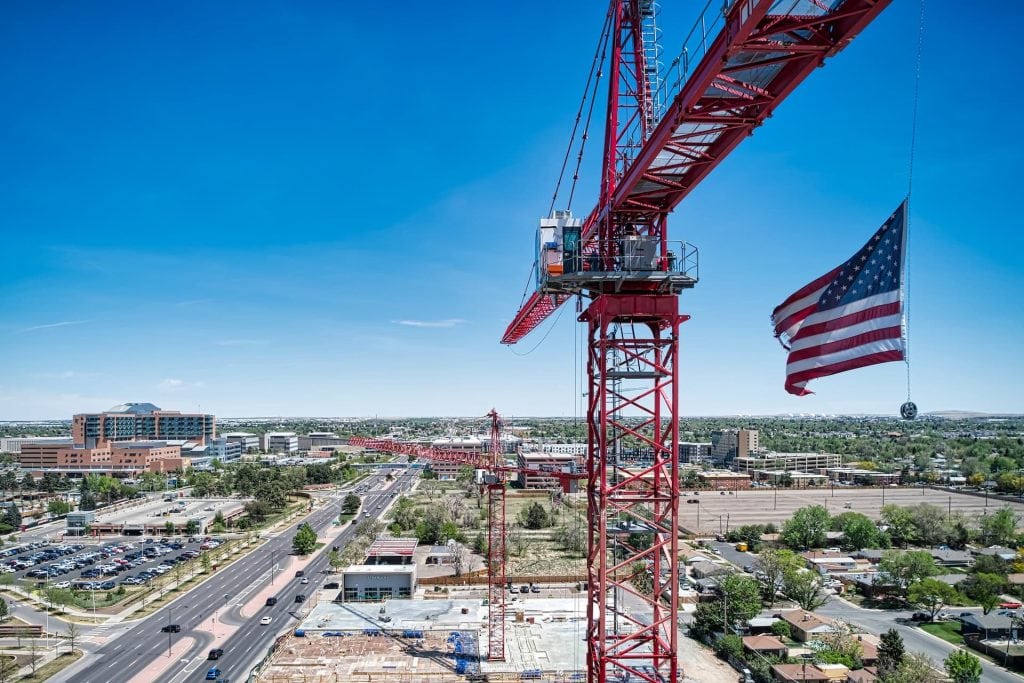
Moving to Aurora offers access to several healthcare facilities, including the esteemed University of Colorado Anschutz Medical Campus.
However, as with many rapidly growing cities, traffic congestion can be challenging during peak hours. And while crime rates are higher than in some other Colorado cities, they are relatively in line with national averages for a city of Aurora’s size.
Pueblo
Pueblo, known as the “Steel City” due to its industrial heritage, provides a more affordable option for those considering moving to Colorado. The city offers a lower cost of living than the state average, making it attractive to retirees and young families. Pueblo is rich in cultural history, with numerous museums, art galleries, and cultural festivals throughout the year.
However, the city’s job market is less robust than in some other parts of the state, and the crime rate is higher than the national average. But for those willing to look beyond these challenges, Pueblo offers a unique blend of affordability and cultural richness within Colorado.
Grand Junction
Grand Junction, located on Colorado’s Western Slope, is an outdoor enthusiast’s paradise. The city provides easy access to stunning natural landmarks like the Colorado National Monument and the Grand Mesa, the world’s largest flat-top mountain. Grand Junction also boasts a thriving downtown area with unique shops, restaurants, and a strong arts scene.
However, the city’s economy relies heavily on the energy sector, which can lead to economic volatility. The arid climate also means hot, dry summers and less snowfall in the winter than in other parts of Colorado.
Despite these considerations, Grand Junction’s access to nature, quality of life, and affordable housing make it an attractive option for many.
Diverse Housing and Rental Costs
Colorado’s housing market is as diverse as its landscapes, with options ranging from luxury condos in the heart of Denver to single-family homes in charming suburbs like Aurora and Pueblo.
The housing costs in Colorado can be a point of contention for newcomers as they are relatively higher than the national average. In Denver, the largest city, the median home price is significantly above the national average. On the other hand, smaller cities like Grand Junction offer a lower cost of living and more affordable housing options.
If you need more time to be ready to buy, the rental market offers a range of options. The price of renting a one-bedroom apartment varies significantly from city to city. Boulder, for example, is known for higher rental prices due to the demand from students at the University of Colorado and other professionals.
Meanwhile, cities like Pueblo and Grand Junction tend to have more affordable rental costs.
Top-Notch Education
Quality education is a big part of Colorado’s appeal. The state is home to some highly-ranked universities like the University of Colorado, Colorado State University, and the Colorado School of Mines. These institutions offer excellent education opportunities and contribute to the state’s job market, particularly in sectors like technology and engineering.
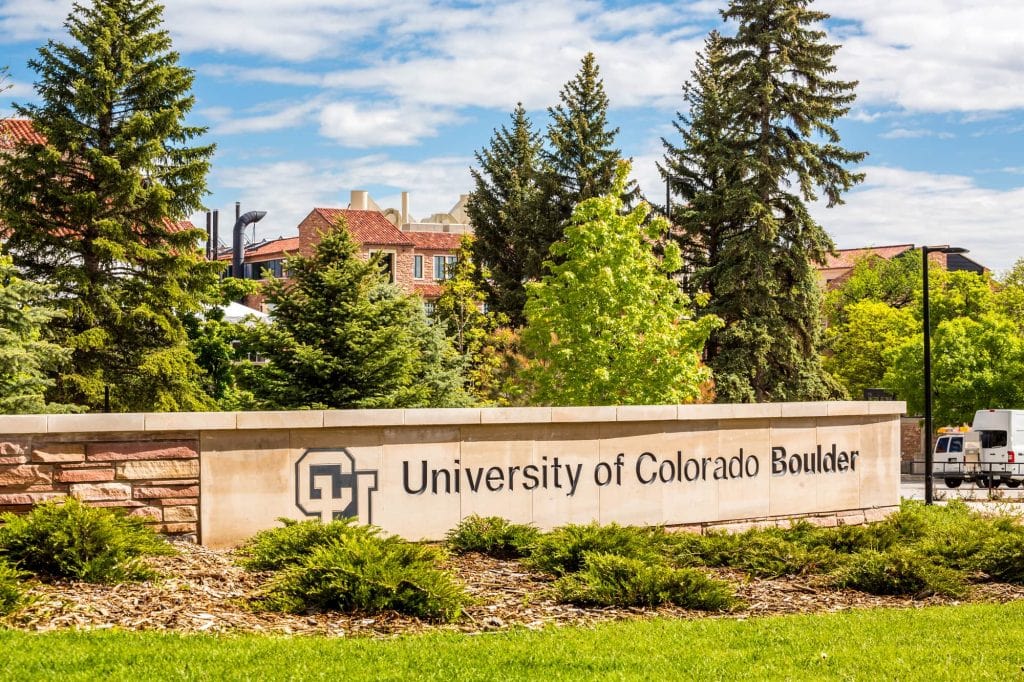
Colorado also prides itself on its public school system. Many of the state’s school districts are highly rated, with some suburban districts consistently ranking among the best in the country. It’s crucial for families considering a move to Colorado to research local schools in their prospective area.
Transportation and Traffic
In terms of transportation, Colorado offers both urban and rural options.
Public transit systems in major cities like Denver and Boulder are well-developed, offering buses, light rail, and bike-sharing programs. Denver’s Union Station is also a hub for train travel across the state and beyond.
However, traffic can be a concern in and around the biggest cities, particularly during peak commuting hours.
Denver is known for its congested highways, and the I-70 corridor to the mountain towns can be packed, especially during ski season. But Colorado also offers plenty of walkable and bike-friendly cities like Boulder, reducing the need for car use.
A reliable car will absolutely be necessary if you plan to live in a mountain town or rural area due to limited public transit options.
Quality Healthcare
When it comes to healthcare, Colorado ranks highly. The state has some of the healthiest residents in the country, thanks in part to the abundance of outdoor activities and a culture that values health and wellness.
The state has many well-regarded hospitals and medical centers, such as the University of Colorado Hospital in Aurora and the Children’s Hospital Colorado.
However, it’s essential to be aware that healthcare costs in Colorado can be high, especially for specialized treatments. Be sure to factor in healthcare costs when calculating your living expenses in Colorado.
Sports and More Sports
For sports fans, Colorado is practically paradise. The state hosts four major league sports teams: the Denver Broncos football team (NFL), Colorado Rockies (MLB), Denver Nuggets (NBA), and Colorado Avalanche (NHL). Attending a game is a favorite pastime for many Coloradans, contributing to the state’s passionate sports culture.
Beyond professional sports, Colorado is known worldwide for its outdoor sports and recreational activities. Whether hiking, mountain biking, or rock climbing, outdoor enthusiasts have endless opportunities in Colorado.
While the state’s love for sports and outdoor activities contributes to a healthier lifestyle, newcomers should adjust to Colorado’s higher altitude before engaging in strenuous activity.
Eco-Friendly and Sustainability
Colorado life is often at the forefront when it comes to eco-friendly practices and sustainability.
The state’s abundant sunshine makes it ideal for solar power, and many residents utilize solar panels for their homes.
However, living sustainably in Colorado does come with its challenges. Water conservation is a significant concern due to the state’s arid climate and reliance on the Rocky Mountain snowpack for water supply. As such, residents are often encouraged to implement water-saving measures in their homes.
While these practices inherently contribute to a more sustainable lifestyle, they may require additional personal investment and effort—something many families may not be prepared for.
Is Best For Outdoor Lovers and Families
Colorado offers an ideal setting for those who appreciate the great outdoors, love sports, or want a balance of city and country living—with scenic views, including the likes of Rocky Mountain National Park and Mesa Verde National Park.
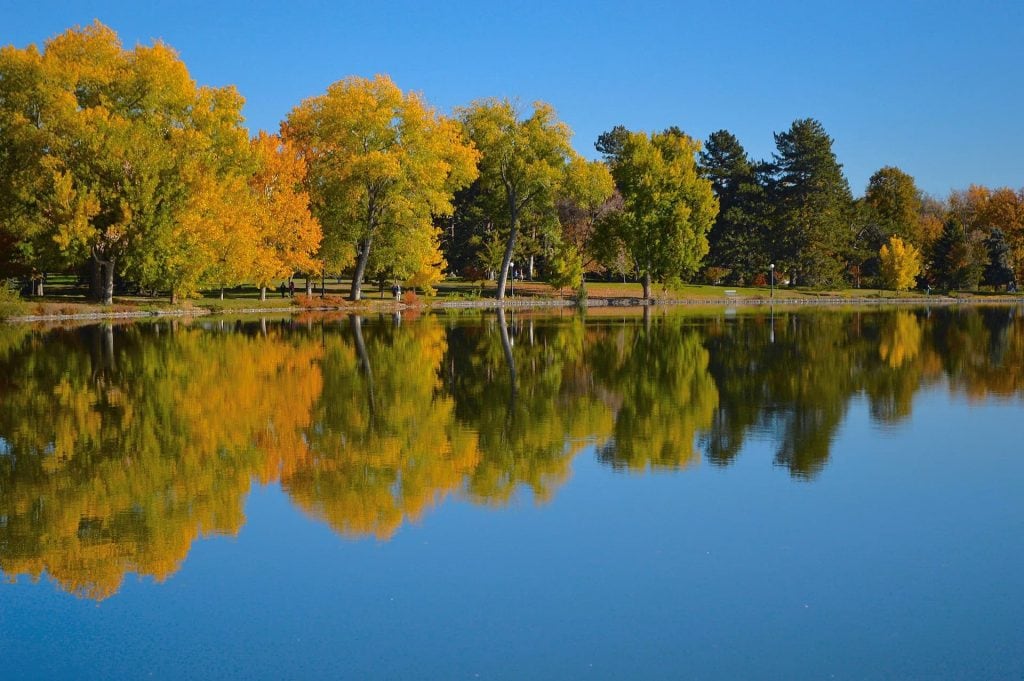
Its high-quality education system makes it attractive for families, while the booming job market in industries like tech and health care appeal to young professionals. Colorado’s focus on sustainability and clean energy is ideal for those seeking an eco-friendly lifestyle. Denver, in particular, has been deemed one of the fittest and most “health-conscious” cities in the U.S.
Unfortunately, the higher cost of living, particularly in regard to housing and healthcare, is a factor to consider for those contemplating moving to the Centennial State.
While Colorado offers many benefits, aligning them with lifestyle preferences and financial considerations is paramount when evaluating if it’s the right fit for you.
FAQs: Moving to Colorado
To help make the decision about moving to Colorado clearer, we’ve compiled some of the most frequently asked questions about living in the state:
Is Colorado worth moving to?
This largely depends on personal preference. We would definitely recommend Colorado to young professionals or families looking to settle down. Colorado offers an abundant amount of natural outdoor space for activities, a strong job market, and an overall high quality of life.
Is it hard to move to Colorado?
Moving to Colorado can present the same challenges as any other relocation. Factors such as the high cost of living and adjusting to the higher altitude might pose difficulties for some.
How much money do I need to move to Colorado?
The money needed to move to Colorado depends on several factors, including your housing situation, job status, and lifestyle (spending habits). If your job situation isn’t finalized, you’ll need to carefully consider moving expenses.
What part of Colorado is the best to live in?
For city lovers, Denver offers a vibrant urban scene that rivals other major US cities. Boulder is great for outdoor enthusiasts and active families. Colorado Springs attracts military families and those who prefer a quaint, small-town feel.
What are the pros and cons of living in Colorado?
Pros include easy access to outdoor activities, a healthy lifestyle, great educational institutions, and a strong job market. Cons include a high cost of living, bad traffic in metropolitan areas, and a challenging (seasonal) climate for some.
Is it cheaper to live in Arizona or Colorado?
It is generally cheaper to live in Arizona than in Colorado, particularly regarding housing costs. However, specific living costs can vary based on the city or town in both states. Denver is more expensive than Colorado Springs, for example.
Why do so many people want to live in Colorado?
Many people are attracted to Colorado’s high quality of life, beautiful outdoor spaces, strong job market, and educational opportunities for growth. The state’s inherent natural beauty, with its mountainous landscapes, is another significant draw.
Concluding Thoughts on Moving to Colorado
Moving to Colorado offers a unique blend of natural beauty, outdoor recreation, thriving job markets, and quality education. However, the higher cost of living and geographical constraints make it crucial to weigh your options carefully.
If you’re considering taking the leap to call Colorado home, check out our comprehensive guide on living in Colorado and start planning your move to the Centennial State today.
For a successful move to Denver neighborhoods or any other area in Colorado, it’s always best to work with an experienced real estate agent who knows the nuances of each neighborhood—and can help direct you accordingly.
Contact a local agent at eXp Realty today to get started planning your move. You can also search for properties on our website or sign up to get alerts when exciting new listings come on the market.
